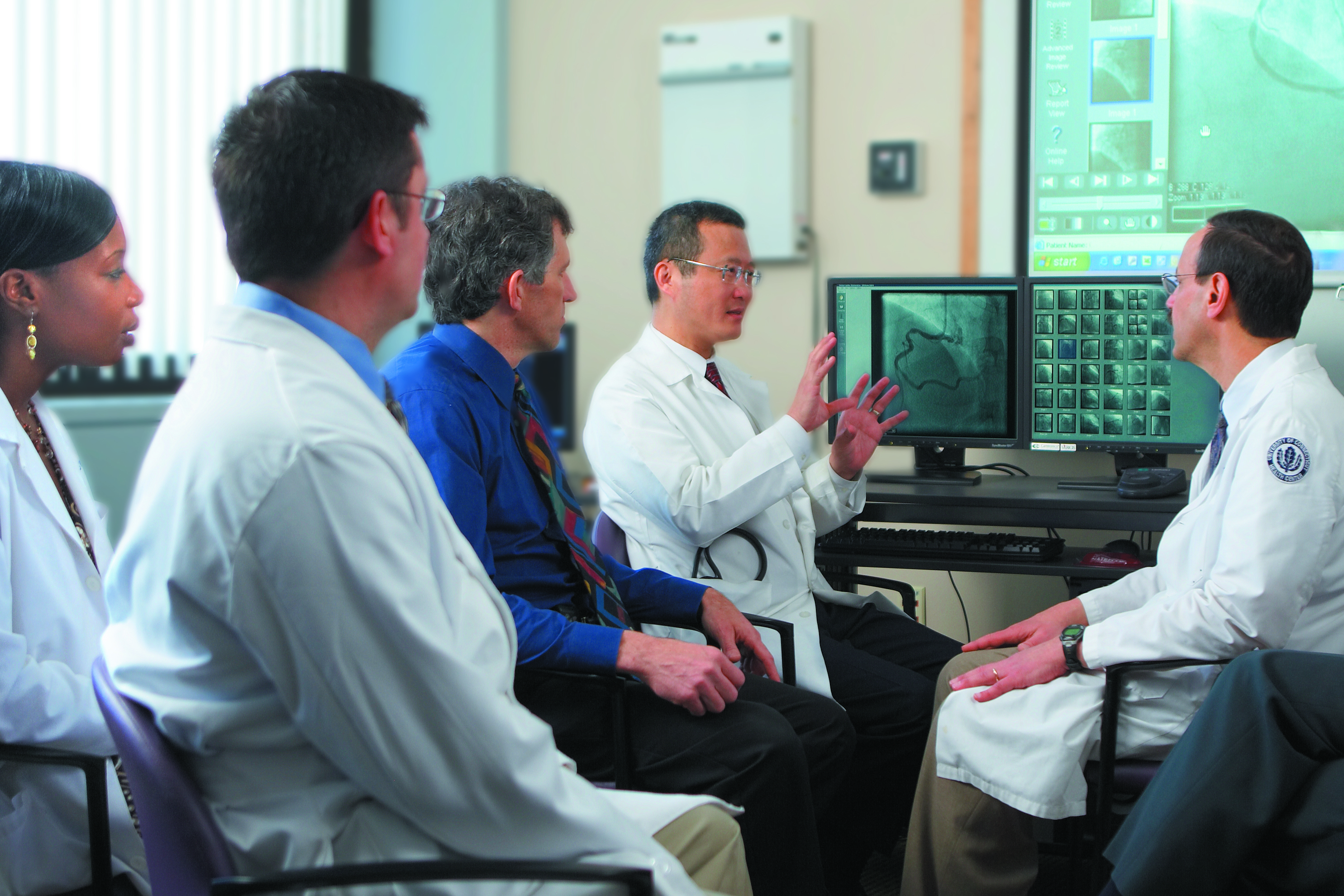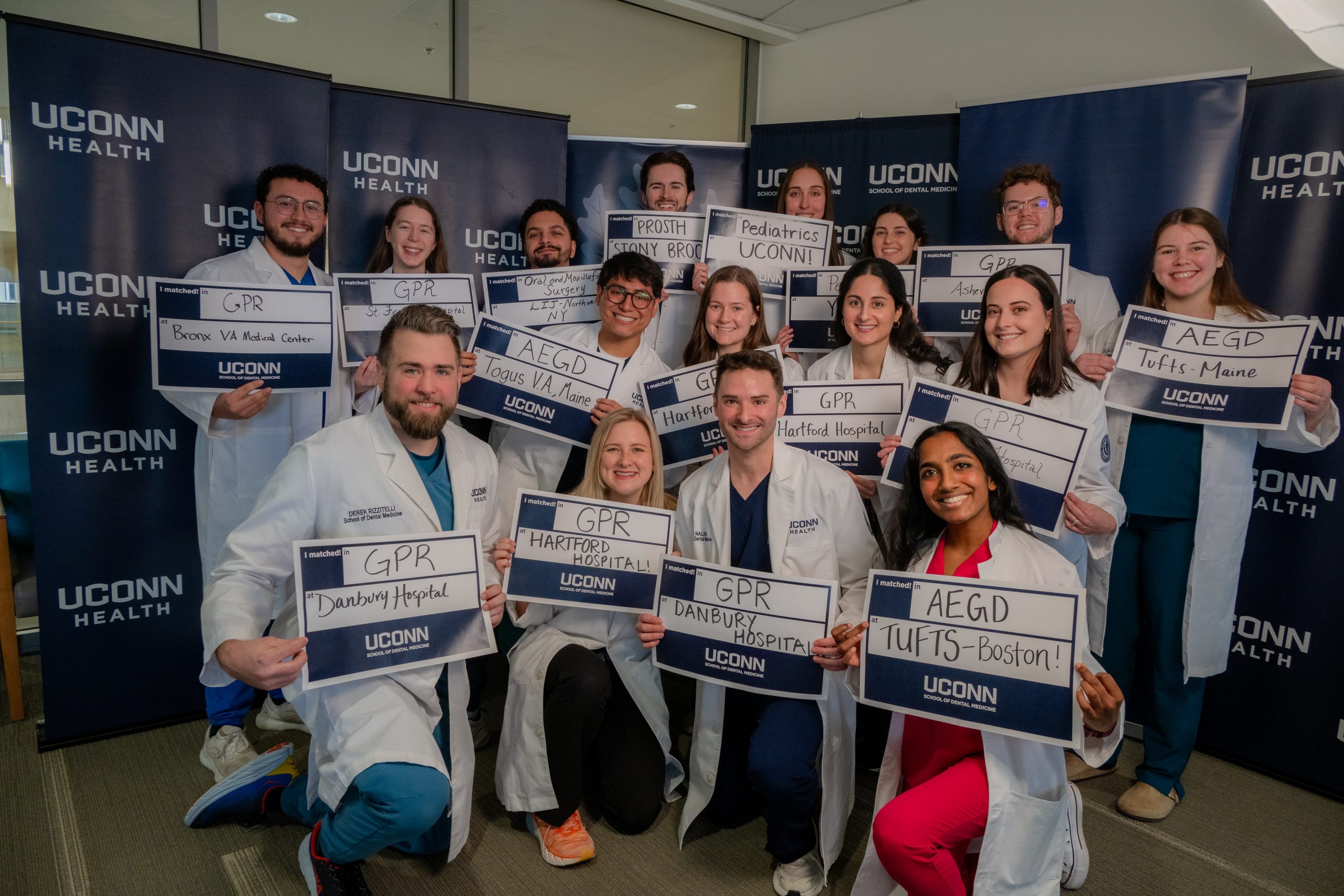Heart failure is a big problem. But cardiologist Bruce Liang believes it could be fixed with a small molecule.
Liang’s startup, Cornovus Pharmaceuticals, is developing a new drug based on a small molecule that could save people in the advanced stages of heart failure, people who would otherwise worsen and die. The potential medicine has been found effective in mice and in dogs, and could soon be tested in humans. But first it needs to get approval from the Food and Drug Administration (FDA) as an investigational drug.
Hundreds of thousands of people in the U.S. and Europe have advanced heart failure but cannot, due to age or infirmity, get heart transplants or implants to help their hearts pump better. The outlook for these patients is grim. And for Liang, that’s unacceptable.
Liang is the dean of UConn’s medical school, but he’s also a researcher and practicing cardiologist. He became a cardiologist in part because of the immediate results it can give: a cardiologist can do a surgery that clears a clogged artery, or prescribe a drug that nudges blood pressure to a better level and give someone a brand new lease on life in just days. As a cardiologist, he’d like to be able to help even the sickest heart patients. He is constantly motivated by these sickest of patients, for whom a new medication is sorely needed.
So Liang, collaborating with National Institutes of Health (NIH) chemist Kenneth Jacobson, co-invented a potential new drug that may help even the most difficult cases of advanced heart failure. It has worked well in mice with heart failure conditions, and later in dogs, larger animals that are closer to human physiology. The drug seems to prevent heart cells from dying by affecting nitric oxide, a signaling molecule. And it does this without lowering blood pressure, which is a big disadvantage of similar drug candidates.
“That’s a big advantage, because that means if it’s true in humans with end-stage heart failure, you could go ahead and give it without worrying about dropping their blood pressure, which is a big no-no because they could die from low blood pressure,” Liang says. “To our knowledge, there’s not another drug out there in development that has this unique property.”
The new medication is a small molecule, which means it can be chemically manufactured (think of aspirin or penicillin) instead of having to be grown in a bacterial or animal cell (like insulin). Small molecules are easier to manufacture and potentially more affordable for patients than more complex drugs, and Liang’s new drug could potentially help many people. More than 500,000 people in Europe and the U.S. suffer from advanced heart failure that cannot be treated with surgery or other options. And less advanced disease affects more than five million people in those same regions.
But even small molecules need big money to become medicines. Cornovus has secured about $3.5 million in funding from Connecticut Innovations and from longtime UConn supporters Ray ’56 (CLAS) and Carole Neag. And the young company received critical early-stage support from UConn’s Office of the Vice President for Research to seek patent protection and establish a startup. Cornovus rents space in UConn’s Technology Incubation Program (TIP) facility at UConn Health in Farmington.
Cornovus is also receiving funding for chemical manufacturing process development from the NIH through the Science Moving towArds Research Translation and Therapy (SMARTT) program. If all goes as planned, the company’s compound could get investigational new drug status from the FDA in summer 2018. With that in hand, they could start testing the drug in humans – and hopefully someday soon, providing a better option for even the sickest heart patients.



